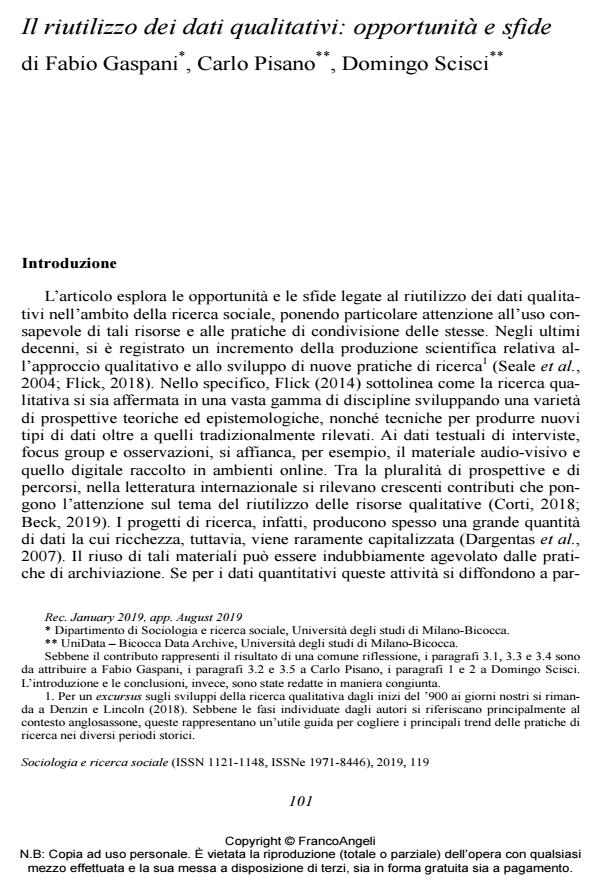Il riutilizzo dei dati qualitativi: opportunità e sfide
Titolo Rivista SOCIOLOGIA E RICERCA SOCIALE
Autori/Curatori Fabio Gaspani, Carlo Pisano, Domingo Scisci
Anno di pubblicazione 2019 Fascicolo 2019/119
Lingua Italiano Numero pagine 17 P. 101-117 Dimensione file 202 KB
DOI 10.3280/SR2019-119005
Il DOI è il codice a barre della proprietà intellettuale: per saperne di più
clicca qui
Qui sotto puoi vedere in anteprima la prima pagina di questo articolo.
Se questo articolo ti interessa, lo puoi acquistare (e scaricare in formato pdf) seguendo le facili indicazioni per acquistare il download credit. Acquista Download Credits per scaricare questo Articolo in formato PDF

FrancoAngeli è membro della Publishers International Linking Association, Inc (PILA), associazione indipendente e non profit per facilitare (attraverso i servizi tecnologici implementati da CrossRef.org) l’accesso degli studiosi ai contenuti digitali nelle pubblicazioni professionali e scientifiche.
The article explores opportunities and challenges related to the re-use of qualitative data in social research. It also focuses on the strategies developed by research infrastructures to promote and facilitate informed data use. In the Italian context, the practices related to the re-use of qualitative data are not sufficiently explored and require that the scientific community deal with some important ethical, legal, epistemological and methodological issues. In order to share data, it is important to adopt, from the earliest stages of research, a plan for the management of qualitative materials with a data life cycle perspective.
- Longitudinal Data Infrastructures in Europe Filippo Accordino, Fabrizio Pecoraro, Daniela Luzi, Carlo Pisano, Domingo Scisci, pp.91 (ISBN:978-3-032-07004-3)
Fabio Gaspani, Carlo Pisano, Domingo Scisci, Il riutilizzo dei dati qualitativi: opportunità e sfide in "SOCIOLOGIA E RICERCA SOCIALE " 119/2019, pp 101-117, DOI: 10.3280/SR2019-119005